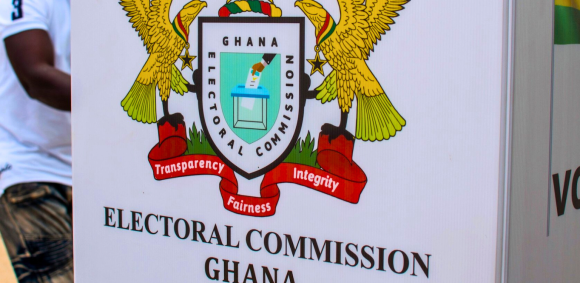With just two months to the national elections, the Research Department at the Presidency of Ghana has concluded a study that indicates there will be a runoff in the presidential elections. The survey, which included views from over 25,000 voters across 276 constituencies, showed that 80% of participants have already decided which party they will support.
According to the findings of the department, there is a split in voter preference, with 46.3% of respondents indicating their support for the governing New Patriotic Party (NPP) and the same percentage for the biggest opposition party, the National Democratic Congress (NDC), suggesting that neither party is likely to achieve a clear majority. The survey also found that 9% of voters will decline to vote due to dissatisfaction with the candidates or because the election occurs on the Sabbath.
However, another recent poll by Global InfoAnalytics reports that former president John Dramani Mahama, the presidential candidate of the NDC, has 51.1% of committed voters, while Vice President Mahamudu Bawumia, the flagbearer of the incumbent NPP has the support of 37.3%. The report cited several reasons for the voters’ choices. It highlights Mr Mahama’s growing popularity, particularly among undecided or floating voters, with whom he leads by 54% compared to Dr Bawumia’s 23%.
A common view is that this election will be a closely fought contest, and the winner could very well win by the toss of a coin. We examine the implication of a runoff if neither of the two leading candidates obtains a clear majority, as well as the probable challenges of a runoff.
Runoff elections are necessary to ensure that the elected candidate truly has the support of a majority of voters. In elections where many candidates are running for a single position, the possibility that none of them obtains more than 50% of the votes in the first round is high. A second round of voting provides an opportunity for the electorate to make a clearer choice. This prevents a candidate from winning despite lacking majority support and ensures that the elected candidate represents the will of most voters.
In a runoff election, the top two candidates from the initial election result go head-to-head in a second round of voting. If there is a runoff, we anticipate it will be held a few weeks after the first round of voting, as is usually the case. This allows candidates to continue campaigning and gives voters time to make a final and more informed decision.
A second ballot in a runoff election is not without problems. One of the key challenges is the possibility of low voter turnout. When compared to general national elections, runoff elections often have a voter drop-off. This means fewer voters turn out to vote in the runoff because some may become disinterested after the initial election.
Some reasons for voter drop-off in a second round of voting are obvious. In Ghana, as in developing democracies, many voters troop to polling stations and spend the night there, slumped over improvised seats or lying on the floor to wake up and join the queue at dawn. Some prefer to spend the night at home but must leave before dawn. Then there is the long wait in long, winding, meandering queues. These are far from pleasant experiences and contribute to a low turnout in a runoff. Not every voter is enthused about the practice of voters sleeping rough overnight at polling centres.
Many aged voters also suffer from various neurodegenerative disorders and medical conditions and may not be able to tolerate an all-day wait in a queue. Ghana has had two runoff elections: one in 2000 and the other in 2008.
The constitutional provision for winning a presidential election in Ghana is stated in article 63(3) as follows: “A person shall not be elected as President of Ghana unless, at the presidential election, the number of votes cast in his favour is more than fifty per cent of the total number of valid votes cast at the election.”
This means the winner of a presidential election must get more than 50 per cent of the valid votes cast. There is an argument to the effect that it is wrong to determine a presidential winner in Ghana’s elections on no legal basis. Numerous messages have been received requesting guidance on the way forward.
The argument is that in all cases where the total number of valid votes cast is odd, no contesting candidate can obtain exactly 50 per cent of the total valid votes cast, thus, rendering the 50 per cent part of the construct inoperative and invalid. Little or no thought has been given to these arguments, so the provision remains intact.
We urge the two leading candidates to recognise this and develop effective strategies to motivate their supporters for the runoff election if there is no outright winner. By increasing voter outreach and education, candidates can enhance voter turnout in case of a runoff.
Despite these difficulties, runoff elections have a significant impact on election results, as they provide voters with a second chance to evaluate and choose between the top candidates. In some cases, the results of the runoff election can completely change the outcome of the initial election, as candidates who did not secure a majority in the first round can still win in the runoff.
Conclusion
Runoff elections are a democratic tool used to determine a clear winner when no candidate secures an absolute majority in the first round. They provide an opportunity for voters to make a more informed choice between the top two candidates. While runoff elections have their benefits in terms of representation and democratic outcomes, they also face challenges such as lower voter turnout and potential limitations in reflecting the broader population’s views.






























